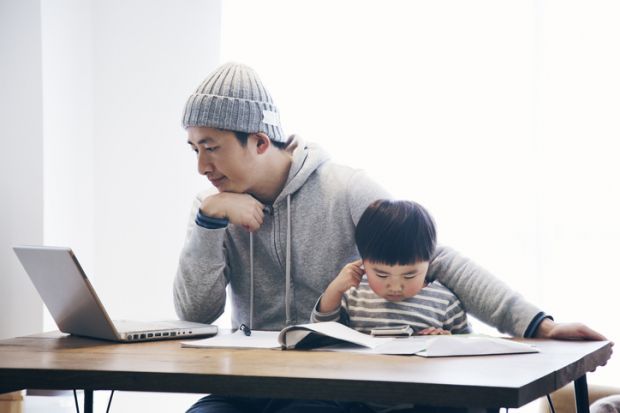A UK institution has said it will give equal leave to parents, regardless of their gender or sexual orientation – becoming one of just a couple of universities in the sector to do so.
The University of the Arts London (UAL) has announced it will give its salaried employees and hourly paid lecturers up to 26 weeks of full maternity or paternity pay.
It has also reduced the amount of time employees need to have worked at the institution to receive the benefit, taking its continuous service requirement down from 12 months to 26 weeks.
Naina Patel, chief people officer at UAL, said its move was in step with the times. “Our new equal parental leave policy has been designed to support 21st-century families – it signifies UAL’s commitment to challenge gender inequality and outdated cultural perceptions about traditional family roles,” she said.
She expressed hope that the move would also help UAL remain competitive in attracting and retaining skilled talent, despite “historically high turnover rates” in the UK’s higher education sector.
UAL’s policy, which is also open to parents by birth as well as adoptive parents, tackles a long-running issue in higher education, with staff, especially women, often feeling the need to choose between career or children.
Across UK institutions, there is a “huge” discrepancy in maternity leave, scholars for THE Campus previously wrote. While a few universities allow 26 weeks at full pay, most offer between four and 18 weeks – and 7 per cent do not give any leave at full pay. Meanwhile, equal parental leave remains very rare.
Under UK law, fathers are entitled to two weeks of paid leave around the birth of their child, but researchers found that many men don’t take the time off, frequently because of financial concerns.
In the higher education sector, UAL is among the first adopters of such an equal parental leave policy. It joins the University of Exeter, which in 2018 offered its scholars six months of parental leave from day one of their employment.
While such policies are still the exception rather than the rule, Polly Mackenzie, chief social purpose officer at UAL, said she hoped more institutions would consider them.
“We hope this move will inspire other organisations to introduce equal parental leave and contribute to a country in which gender no longer determines your earning potential.”




